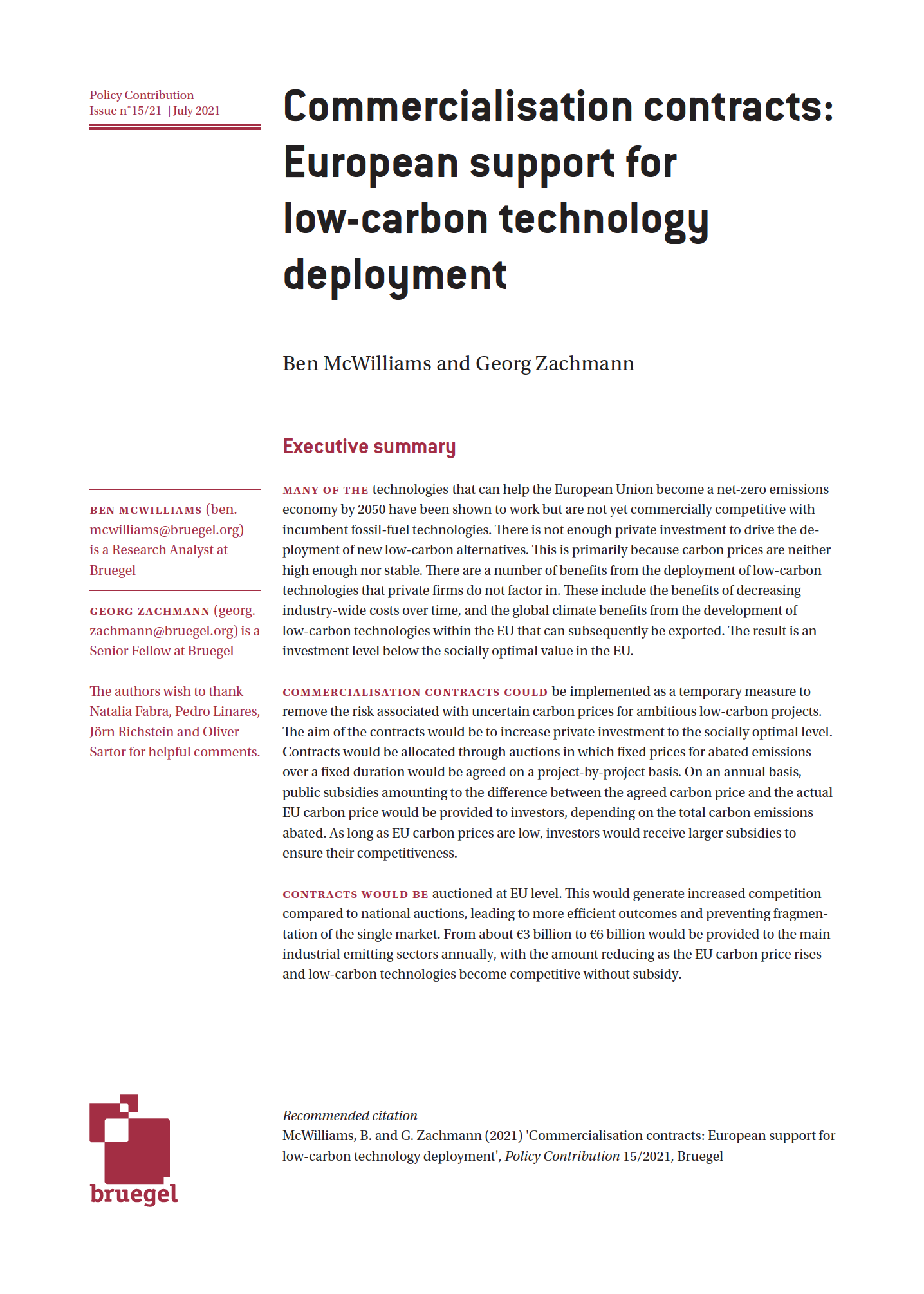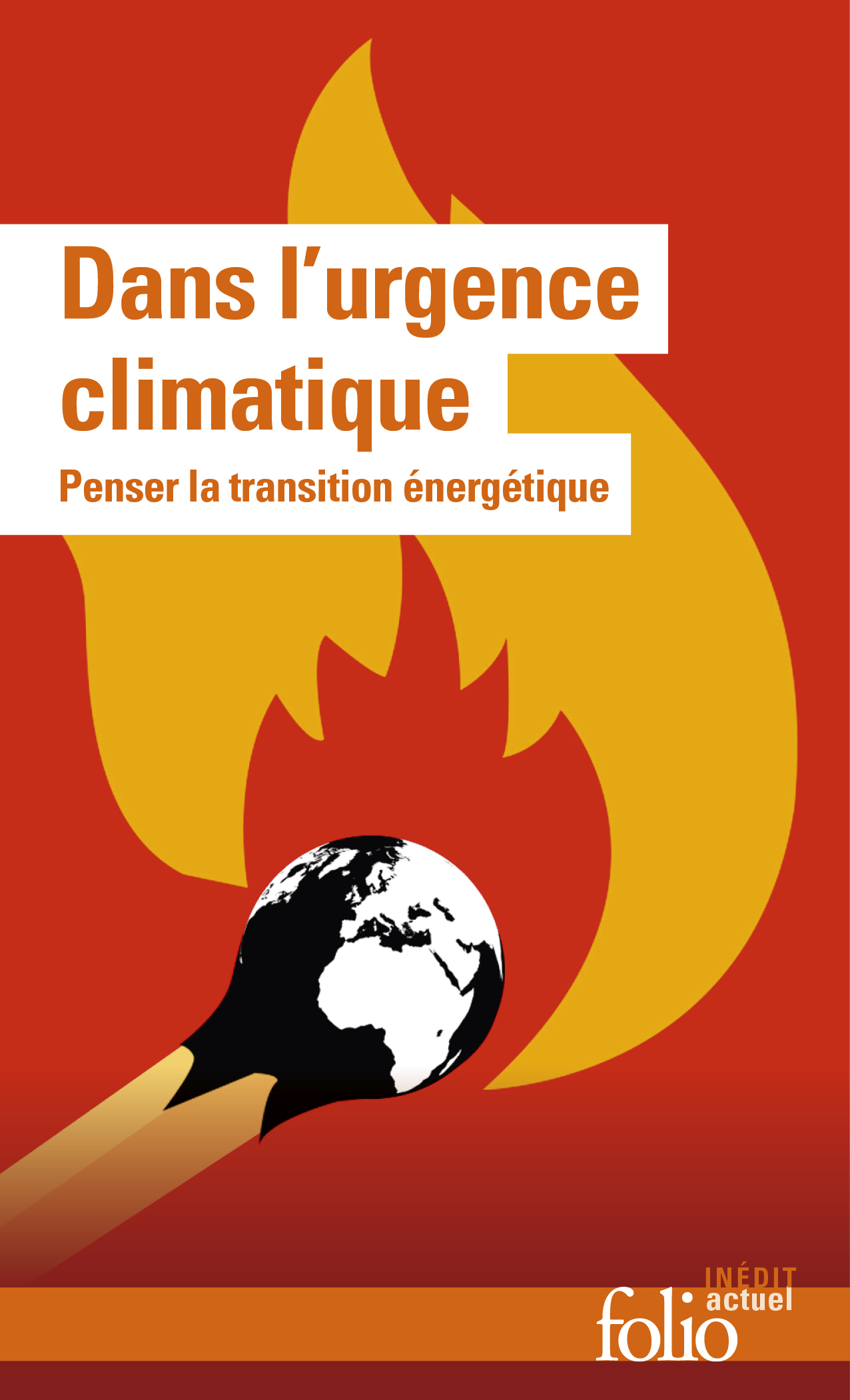Policy Contribution
Commercialisation contracts: European support for low-carbon technology deployment
To cut the cost of decarbonisation significantly, the best solution would be to provide investors with a predictable carbon price that corresponds to the envisaged decarbonisation pathway.
The authors wish to thank Natalia Fabra, Pedro Linares, Jörn Richstein and Oliver Sartor for helpful comments.
Many of the technologies that can help the European Union become a net-zero emissions economy by 2050 have been shown to work but are not yet commercially competitive with incumbent fossil-fuel technologies. There is not enough private investment to drive the deployment of new low-carbon alternatives. This is primarily because carbon prices are neither high enough nor stable. There are a number of benefits from the deployment of low-carbon technologies that private firms do not factor in. These include the benefits of decreasing industry-wide costs over time, and the global climate benefits from the development of low-carbon technologies within the EU that can subsequently be exported. The result is an investment level below the socially optimal value in the EU.
Commercialisation contracts could be implemented as a temporary measure to remove the risk associated with uncertain carbon prices for ambitious low-carbon projects. The aim of the contracts would be to increase private investment to the socially optimal level. Contracts would be allocated through auctions in which fixed prices for abated emissions over a fixed duration would be agreed on a project-by-project basis. On an annual basis, public subsidies amounting to the difference between the agreed carbon price and the actual EU carbon price would be provided to investors, depending on the total carbon emissions abated. As long as EU carbon prices are low, investors would receive larger subsidies to ensure their competitiveness.
Contracts would be auctioned at EU level. This would generate increased competition compared to national auctions, leading to more efficient outcomes and preventing fragmentation of the single market. From about €3 billion to €6 billion would be provided to the main industrial emitting sectors annually, with the amount reducing as the EU carbon price rises and low-carbon technologies become competitive without subsidy.
Recommended citation
McWilliams, B. and G. Zachmann (2021) ‘Commercialisation contracts: European support for low-carbon technology deployment’, Policy Contribution 15/2021, Bruegel















